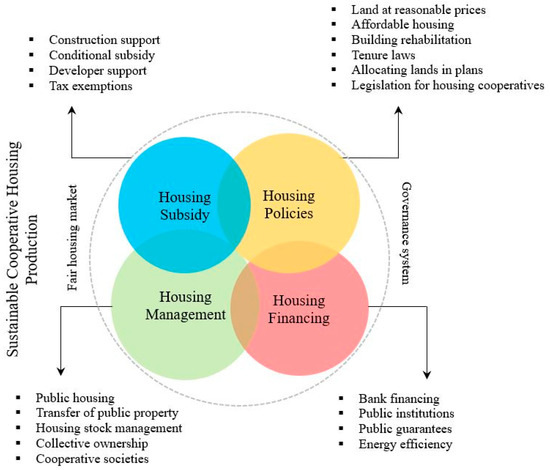Financial Cooperatives based on Waqf for Affordable Housing in Karachi
The document titled “Financial Cooperatives based on Waqf for Affordable Housing in Karachi” presents a comprehensive framework aimed at addressing the significant housing shortage in Karachi, Pakistan. The research emphasizes the potential of Waqf-based financial cooperatives as a sustainable solution to provide affordable housing and improve living conditions for low-income populations.

Introduction
Karachi faces a critical housing crisis characterized by a vast demand-supply gap. With an increasing urban population, the city struggles to offer adequate housing options, leading to informal settlements and overcrowded living conditions. The study proposes the Waqf Cooperative Housing Framework (WCHF) as an innovative approach to tackle these challenges.
Waqf Concept and Its Relevance
Waqf, an Islamic philanthropic endowment, involves donating assets for charitable purposes, with the generated income used to support various community needs. This concept is deeply rooted in Islamic tradition and can be effectively utilized to finance housing projects. By establishing financial cooperatives based on Waqf principles, the study suggests that it is possible to create a sustainable funding model for affordable housing.
Framework of WCHF
The WCHF is designed to mobilize community resources through cooperative structures, enabling collective investment in housing projects. Key components of this framework include:
- Community Participation: Engaging local communities in decision-making processes ensures that housing solutions are tailored to their specific needs.
- Financial Sustainability: The model emphasizes generating income through Waqf assets, which can be reinvested into further housing initiatives.
- Regulatory Support: The framework advocates for supportive policies from the government to facilitate the establishment of Waqf-based cooperatives.
Implementation Strategies
To operationalize the WCHF, several strategies are proposed:
- Establishing Cooperatives: Forming cooperatives that pool resources from members to invest in housing projects.
- Utilizing Unused Land: Identifying and repurposing underutilized land for cooperative housing developments.
- Community Education: Raising awareness about the benefits of Waqf and cooperative models among local populations.
Case Studies and Examples
The document references successful examples of Waqf-based initiatives in other regions, highlighting their effectiveness in improving access to affordable housing. These case studies illustrate how similar frameworks can be adapted to Karachi’s context, showcasing potential benefits such as reduced construction costs and enhanced community engagement.
Challenges and Considerations
While the WCHF presents a promising solution, several challenges must be addressed:
- Legal Framework: There is a need for clear legal guidelines governing Waqf properties and their use in cooperative housing.
- Financial Literacy: Enhancing financial literacy among community members is crucial for effective participation in cooperative models.
- Sustainability Concerns: Ensuring that the income generated from Waqf assets remains sustainable over time is vital for the longevity of housing projects.
Conclusion
The study concludes that implementing the WCHF could significantly alleviate Karachi’s housing crisis by leveraging community resources through innovative financial cooperatives based on Waqf principles. By fostering collaboration between various stakeholders—including government bodies, non-profits, and local communities—the framework aims to create a sustainable model for affordable housing that not only meets immediate needs but also promotes long-term social welfare. In summary, the document advocates for a transformative approach to affordable housing in Karachi by harnessing traditional Islamic principles through modern cooperative practices. This strategy not only addresses the pressing issue of housing shortages but also empowers communities, fosters social cohesion, and promotes economic development within the city.

Further reading: Investigating the Critical Success Factors for Public-Private Partnership (PPP) Projects In Kuwait
Framework of affordable cooperative housing through an innovative waqf … ideas.repec
[PDF] Financial Cooperatives based on Waqf for Affordable Housing in … hrmars
(PDF) Financial Cooperatives based on Waqf for Affordable Housing in … researchgate
